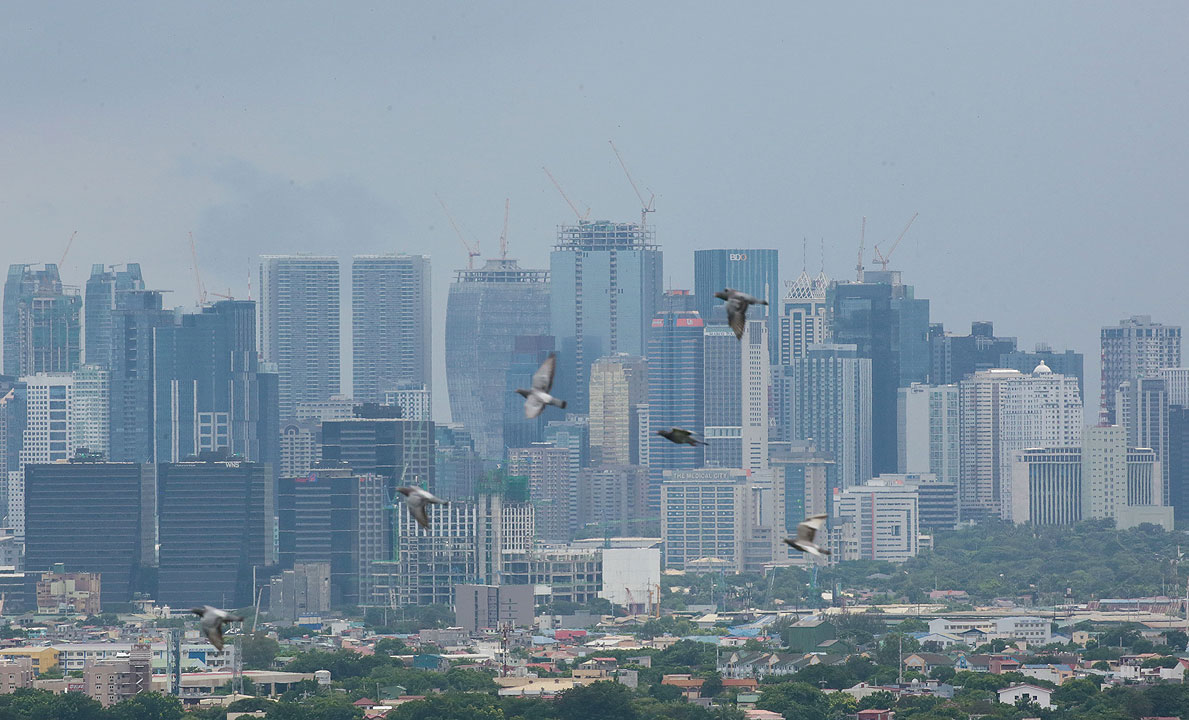July budget gap narrows to P121B
July budget gap narrows to P121B
July budget gap narrows to P121B
August 25, 2021 12:34 am

THE NATIONAL GOVERNMENT narrowed its budget deficit to P121 billion in July as an uptick in revenues failed to offset muted government spending amid the pandemic, the Bureau of the Treasury (BTr) reported on Tuesday.
Preliminary BTr data showed the July
fi
scal de
fi
cit declined by 13.57% from the P140.2-billion shortfall recorded in July 2020 and by 19.3% from the P150-billion de
fi
cit in June.
Despite this, the seven-month budget de
fi
cit widened to P837.3 billion, up 19.5% from P700.6 billion in the same period last year.
The government runs on a budget de
fi
cit as it spends more than the revenue it generates to fund programs and projects that will stimulate economic growth.
Overall public spending inched up by 0.69% to P377.3 billion in July, which was attributed to high base effects last year when the government was still implementing its cash aid program and the timing of subsidy releases to the Philippine Health Insurance Corp. and National Housing Authority.
Primary spending — which is overall expenditures net of interest expenses — edged up 0.93% to P318.2 billion in July, while interest payments were flat at P59 billion.
For the seven-month period, government spending increased by 8% year on year to P2.58 trillion. Primary spending rose 8.16% to P2.316 trillion as of end-July, while interest payments grew by 8.3% to
P267.6 billion “due to discounts from the reissued Fixed Rate Treasury Bonds and coupon payments from Retail Treasury Bonds issued last year and this year.”
HIGHER REVENUES
Meanwhile, revenue collections in July increased by 9.2% year on year to P256.1 billion, bringing the seven-month total to P1.746 trillion, up 3.4% year on year. This was attributed a 10% rise in tax revenue, which made up 90% of the year-to-date total.
The Bureau of Internal Revenue (BIR) posted a 7.5% annual increase in collections to P170.8 billion. This helped boost the BIR’s tax take by 7.8% to P1.2 trillion in the January to July period.
On the other hand, the Bureau of Customs collected P57.2 billion in July, rising 15% from the same month a year ago. For the seven-month period, the BoC collections went up by 18.49% to P358.9 billion.
The Bureau of the Treasury (BTr) saw its income surge by 78% to P13.6 billion in July, which it attributed to higher dividend remittances, National Government share from the Philippine Amusement and Gaming Corp. and interest income from government deposits.
The BTr’s income stood at P95.2 billion for seven-month period, 50% lower than the P190.9 billion during the same period a year ago due to the base effect of higher income and dividend remittances as part of the provisions of Republic Act 11469 (Bayanihan I).
NO STIMULUS
High base e
ff
ects caused the de
fi
cit to narrow in July because unlike last year, the government did not implement a massive cash aid program for those a
ff
ected by stringent lockdowns, UnionBank
of the Philippines, Inc. Chief
Economist Ruben Carlo O. Asuncion said via Viber on Tuesday.
“No more Bayanihan stimulus and it will de
fi
nitely have impact on economic recovery amidst the Delta variant risk ravaging many other economies in the region,” Mr. Asuncion said.
The government has released roughly P13 billion for cash aid to poor families in areas placed under hard lockdowns in August, while P23 billion was released for cash aid in April.
This compares with the P200-billion social amelioration program and the P50-billion wage subsidy program implemented by the government last year.
Michael L. Ricafort, chief economist at Rizal Commercial Banking Corp. (RCBC), said the slimmer budget de
fi
cit last month re
fl
ected improvements in the economy as the BIR and BoC reported higher collections.
“The renewed lockdowns in the National Capital Region since August could lead to increased government spending, lower tax revenue collections and wider budget de
fi
cit,” Mr. Ricafort said in an e-mailed note to journalists.
The government is expecting the deficit to reach 9.3% of GDP this year on expectations of ramped-up public spending, but Mr. Asuncion said hitting the ceiling would be a challenge due to absorptive capacity issues.
The narrower de
fi
cit was due to underspending by the government, which still had around P18 billion in unspent funds for its pandemic response, said Albay Rep. and House Ways and Means Chair Jose Maria Clemente S. Salceda.
“The only consolation in lower de
fi
cit spending is that it leaves us more room for Bayanihan III. I am con
fi
dent that we will have a
fi
nal agreement on the matter by next week. Time, of course, is of the essence,” Mr. Salceda said.
“When we meet again, I will ask the DBM (Department of Budget and Management) about which agencies spend money the best.
Ayuda
(cash aid) is certainly both spent quickly and needed critically. Hence, Bayanihan III devotes P110 billion, or 65% of its total budget of P170.1 billion, on an
ayuda
fund that we can spend anytime an ECQ is declared,” he added.
The House of Representatives has approved the proposed P400-billion Bayanihan III stimulus program, but the Senate has remained lukewarm to the measure. —
Beatrice M. Laforga

